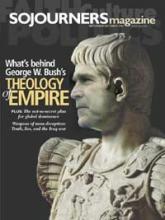Can religious organizations choose to hire only people who share their beliefs? The issue is heating up again. Last December, President Bush issued an executive order allowing such discretion to faith-based organizations receiving federal funds. Similar provisions are being added to legislation including Head Start and the Workforce Investment Act. And the rhetoric is rising.
Some opponents claim that allowing faith-based organizations to use religious criteria in hiring is "government-sponsored bigotry" or a "roll-back on civil rights protections." Proponents answer that those who oppose it are trying "to torpedo funding for thousands of faith-based organizations." Neither is the case. The first step toward a solution is to identify the real questions.
This is an issue where deeply held values come into conflict and must be balanced. There are three important principles at stake. First, faith-based partnerships have an important role in finding new solutions to overcoming poverty. Second, the ability of faith-based organizations to maintain their religious identity and the freedom to hire people who share their religious mission, especially at leadership levels, is often vital to their effectiveness and integrity. Third, civil rights and anti-discrimination laws in the United States are fundamentally important. Any resolution must take all three principles seriously.
The 1964 Civil Rights Act's prohibition on employment discrimination allowed religious organizations to use religious criteria in hiring "ministerial" employees. That exemption was expanded in 1972 to include all employees of a faith-based organization. Since then, the issue has been raised in a variety of litigationall of which upheld the exemption. It's not a new issue.
Read the Full Article
